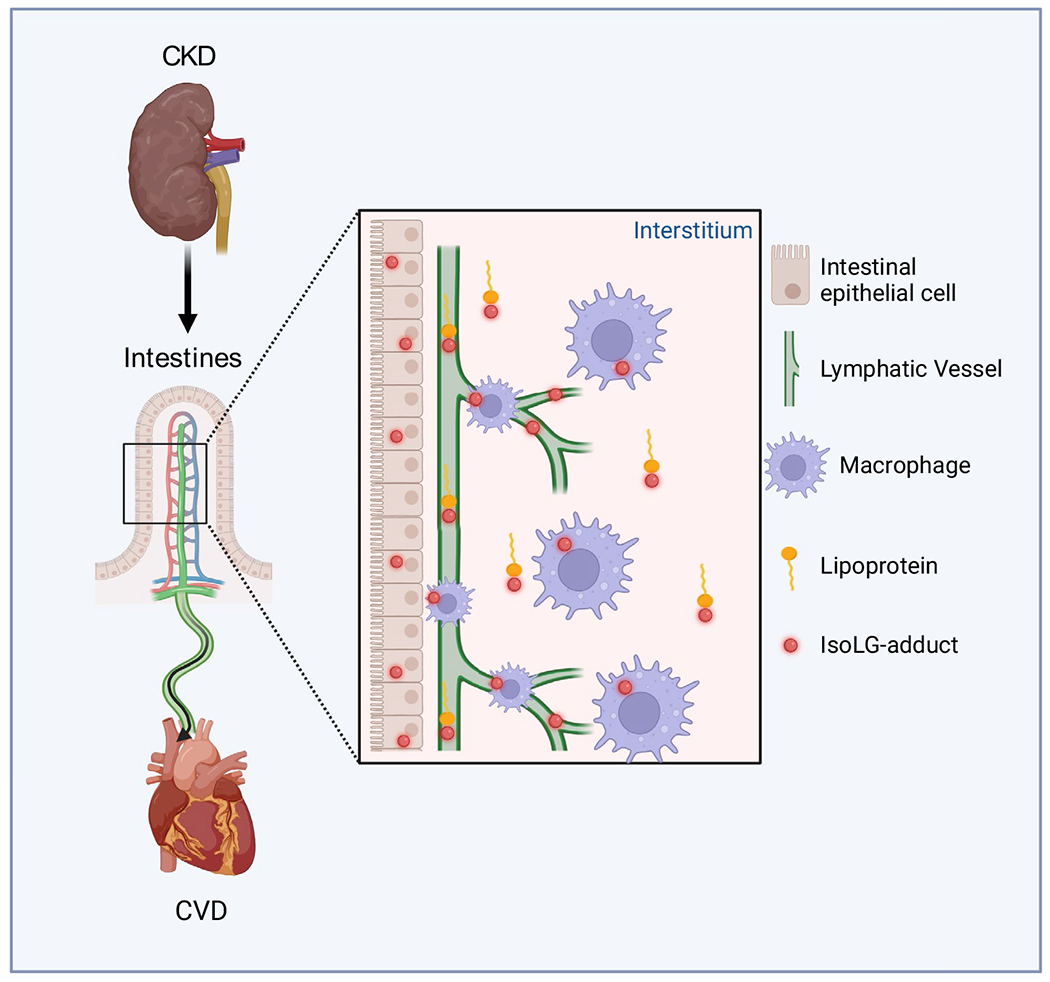Fig. 1.

Schematic illustrating of a new mechanism for adverse kidney–intestine–heart cross talk. Chronic kidney disease leads to accumulation of reactive dicarbonyls, namely isolevuglandin (IsoLG). IsoLG is produced by intestinal epithelial cells and carried by lipoproteins. IsoLG produced by infiltrating immune cells adds to the intestinal accumulation. Concurrently, kidney disease activates intestinal lymphangiogenesis and increases mesenteric lymphatic flow via mechanisms involving IsoLG. The net effect is greater delivery of deleterious elements of the intestinal microbiome/metabolome that amplify cardiovascular diseases
